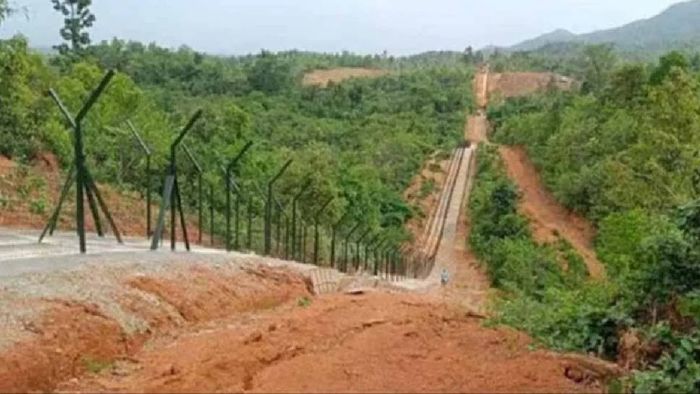Manipur: Village chiefs from Indo-Myanmar border oppose border fencing, warn of consequences if construction continues
Fourteen village chiefs from the Indo-Myanmar border areas in Manipur’s Chandel district have jointly declared their opposition to the ongoing border fencing project, asserting that no construction activities will be allowed within their respective jurisdictions.

- Oct 16, 2025,
- Updated Oct 16, 2025, 10:04 AM IST
Fourteen village chiefs from the Indo-Myanmar border areas in Manipur’s Chandel district have jointly declared their opposition to the ongoing border fencing project, asserting that no construction activities will be allowed within their respective jurisdictions.
The chiefs issued a collective statement citing widespread anxiety among villagers over the demarcation works currently being carried out along the Indo-Myanmar frontier. They warned that the fencing could have serious implications for the land, identity, and community interests of border residents.
“After thorough deliberation, we have unanimously resolved to oppose and prohibit any continuation of the fencing project within our jurisdictions,” the statement read. The leaders further cautioned that if the Border Roads Task Force (BRTF) or any concerned authority continued the construction despite their objections, they “will not be held responsible for any consequences that may follow.”
The chiefs have also urged the government and relevant agencies to halt all border construction activities until the demand for a Separate Administration for the Kuki-Zo people is addressed, a long-standing political issue that continues to fuel tensions and negotiations in the region.
This coordinated stand by border village chiefs underscores deep-seated local opposition to the controversial fencing initiative, which many fear could alter traditional village boundaries and divide families and communities living along the international border.
The Indo-Myanmar border region in Chandel, home to several Kuki-Zo settlements, has witnessed mounting unease over the demarcation drive, with residents arguing that it threatens their ancestral lands and trans-border cultural ties.